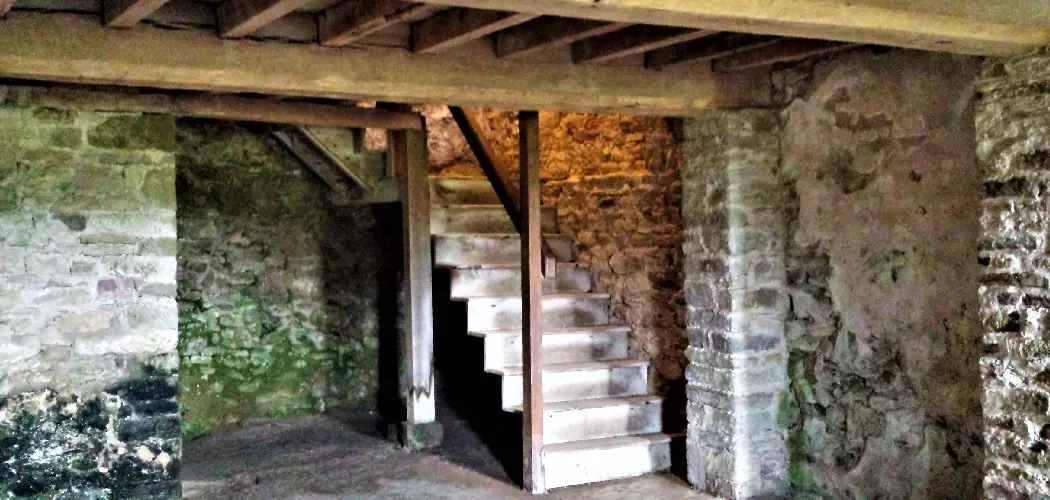If you’ve ever been in a basement that has experienced mildew or mold, you know how unpleasant and overpowering the smell can be. Not only is this odor unpleasant, but it can also be an indication of a serious problem within your property. Not only is this odor unpleasant for humans, but it can indicate that there may be potential health risks associated with mold in the air.
Fortunately, if you’re dealing with a milder issue of mildew in your home, removing its source and minimizing its impact isn’t too difficult – and we’d like to help! With the right approach to treating the problem, however, you can safely remove the mildew smell from your basement for good! In this blog post, we will discuss step-by-step instructions on how to remove mildew smell from basement, all while keeping safety in mind and preventing further damage along the way. Read on to learn more.
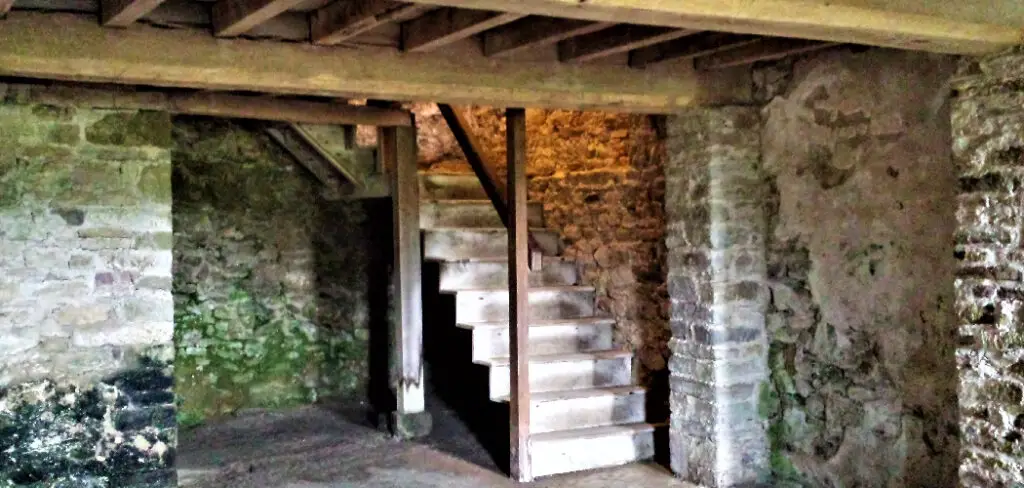
Why Mildew Smell Forms in Basement?
1. Atmosphere
Mildew is a type of fungi that grows in moist, dark places. Basements are especially prone to mildew and mold growth due to their lower temperatures and the fact that they typically don’t have any direct sunlight or ventilation. If not addressed right away, the mildew can spread throughout your basement, creating an unpleasant smell in the process.
2. Leaky Pipes
Leaky pipes can also be a major factor in the formation of mildew growth in your home. If you have a leaky pipe within or near your basement, it can cause excessive moisture to accumulate, which can create an ideal environment for mildew and mold to grow.
Required Items
- Vacuum cleaner
- Disinfectant
- Plastic sheeting or tarps
- Dehumidifier & Humidifier
- Fans
- Protective clothing and mask
- Bleach
- Rubbing alcohol, vinegar, and baking soda
10 Ways How to Remove Mildew Smell From Basement
1. Reduce Humidity
The first step in removing the mildew smell from your basement is to reduce the humidity level within the space. To achieve this, you can use a dehumidifier or humidifier, depending on which is more effective for your environment. Also, if you notice any leaking pipes or damp spots in your basement, make sure to address them right away.
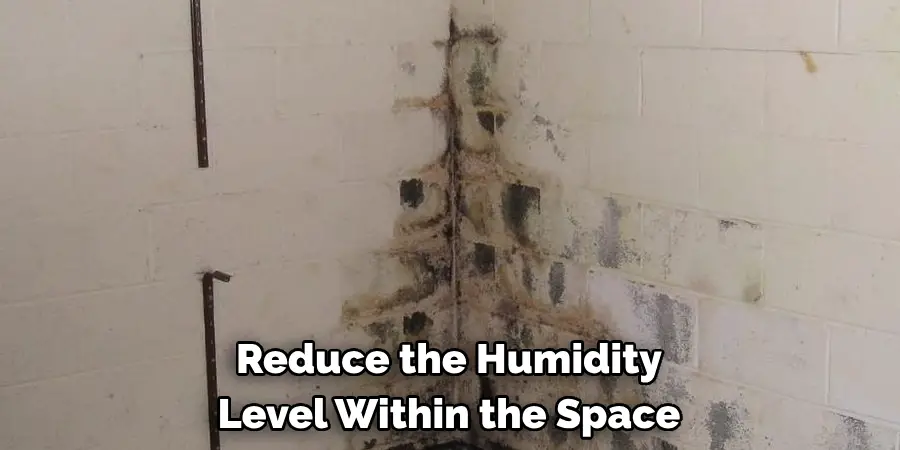
2. Ventilate the Space
If possible, open windows and doors to get fresh air and sunlight into the space as much as possible. The more airflow there is in your basement, the faster the mildew smell will dissipate. If it’s not an option, you can use fans to circulate the air.
3. Cover Damp Spots
If there are any damp spots in your basement, it’s best to cover them with plastic sheeting or a tarp to prevent further mildew growth. This will also help reduce the smell of mildew in the area. Covering these spots can also help you identify the specific area that needs to be treated.
4. Clean and Disinfect
Once you’ve identified the affected areas, it’s time to start cleaning! Start by vacuuming up any mildew or mold growth from the surface. Once you’ve done that, use a disinfectant or cleaner specifically designed for mildew and mold to clean the affected area. Make sure to wear protective clothing and a mask to protect yourself while cleaning.
5. Use Natural Remedies
If you’d prefer not to use harsh chemicals, you can also try using natural remedies such as vinegar, baking soda, and rubbing alcohol. Simply mix these ingredients together and apply them to the affected area. The natural acids in these ingredients will help kill off any remaining mildew or mold and help reduce the smell.
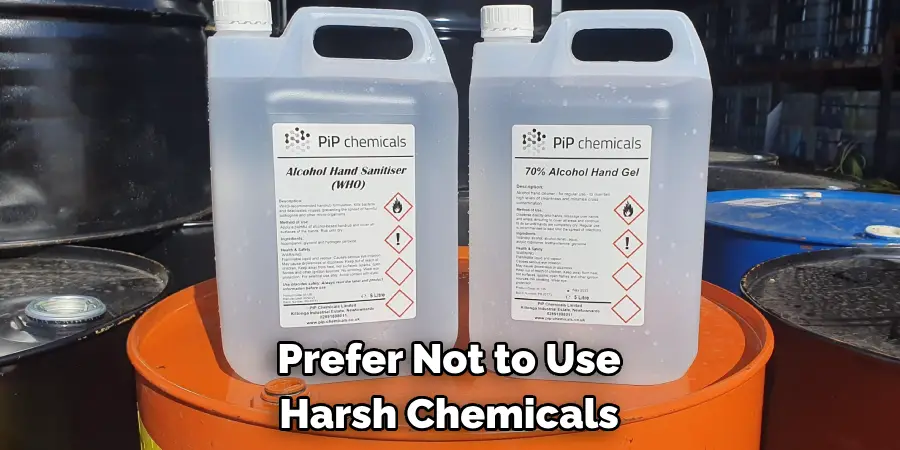
6. Air Dry
Once you’ve disinfected and cleaned the space, allow it to air dry completely before replacing any furniture or other items that were affected by the mildew growth. This will ensure that all traces of mold are gone and that the smell is gone as well.
7. Use a Dehumidifier
Using a dehumidifier in your basement can help reduce the moisture level within the space, making it less likely for mildew to return. Be sure to empty out the water tank on a regular basis so that it continues to work effectively.
8. Replace Affected Items
If you find that any items were affected by the mildew growth, it’s best to replace them. This is especially important if they are porous materials, like carpets or mattresses, as these can harbor dangerous mold spores that can be difficult to remove.
9. Use a Fan
Using a fan in your basement helps circulate the air and reduce the humidity level. This can help prevent mildew growth in the future and will also help reduce any lingering mildew smell.
10. Maintain Regular Cleaning
Once you’ve removed the source of the mildew, it’s important to maintain regular cleaning to keep your basement dry and free of mold or mildew growth. Make sure to vacuum and mop the floors regularly, as well as use a dehumidifier to keep the air dry.
By following these steps, you can effectively remove the mildew smell from your basement and ensure that it doesn’t return in the future. Remember to practice safety while tackling this issue, and if you feel as though the problem is more serious than what you can handle on your own, don’t hesitate to call in a professional for help. With the right approach, you can have your basement smelling fresh and mildew-free in no time!
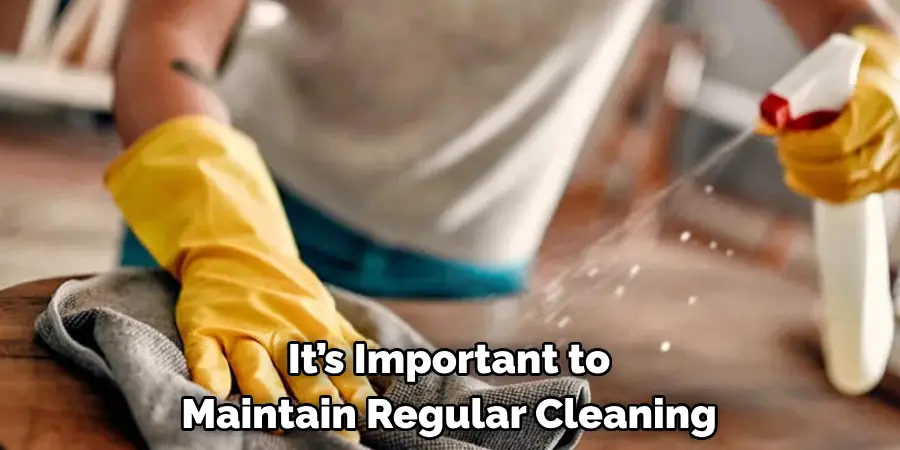
8 Maintenance Tips to Follow
The mildew smell in the basement can be a real nuisance. Not only is it unpleasant to smell, but it can also lead to health complications such as allergies and respiratory problems. Fortunately, there are some simple maintenance steps you can take to prevent mildew smells from building up in your basement and keep your home fresh.
1. Make sure that all areas of your basement are well-ventilated. This is especially important in the summer, as air circulation helps to prevent moist air from getting trapped and creating a damp environment that is ripe for mildew growth. Making sure your basement windows and vents are open can go a long way in preventing mildew smells.
2. Keep an eye out for moisture buildup around fixtures, pipes, and windowsills. Moisture buildup is often one of the primary causes of mildew smell in basements, so it’s important to identify any areas where water might be collecting and address them promptly.
3. Make sure your gutters are working properly and that no clogs are forming. Clogged gutters can cause rainwater to overflow, creating puddles around your basement walls that could lead to mildew growth and a musty smell.
4. Consider installing a dehumidifier in your basement. Dehumidifiers help to keep the air in your basement dry, making it much less likely for mildew and mold to form. Considering the health risks associated with breathing in mildew spores, a dehumidifier can be an important investment.
5. Check your HVAC system regularly to ensure it is working properly and that it’s not causing any dampness or moisture buildup leading to a musty smell. Checking your HVAC system’s filters regularly is also important to ensure that no dust or pollen are contributing to the problem.
6. Clean your basement frequently and make sure you’re vacuuming any carpeting, furniture, or other surfaces in the area to remove any mildew spores. Be sure to use a damp mop when cleaning hard surfaces like floors and walls.
7. Use natural air fresheners such as baking soda and vinegar to help remove the musty smell from your basement. Simply mix a few teaspoons of each in a bowl with water and place them around your basement. The mixture will work to neutralize any odors, making it much easier for you to breathe in fresh air.

8. Have your basement checked for any leaks or water damage that could be contributing to a mildew smell. If you think there may be an issue, it’s best to call in a professional who can assess the situation and fix any problems as soon as possible.
These are just some of the steps you can take to prevent mildew smell from building up in your basement. By following these tips and making sure you address any water buildup or moisture issues, you can keep your basement smelling fresh and prevent it from becoming a breeding ground for mildew and mold.
Conclusion
Removing the mildew smell from your basement can seem like a daunting task, but armed with the right information and supplies, it is possible. By assessing the extent of mold in the area, removing any existing items that may be causing moisture build-up, using dehumidifier machines to reduce humidity levels, and taking measures to adequately ventilate the area, you can restore fresh air circulation and remove the mildew smell.
While effective cleaning products and time spent scrubbing down any affected areas should help eliminate lingering odors, consider consulting a professional to help ensure that all surfaces are clean and free from mildew. With careful attention and regular follow-up care for your basement space, you can get it back to its spotless condition and create a safe, healthy environment again. Follow these steps on how to remove mildew smell from basement to effectively remove the mildew smell from your basement and keep it smelling fresh for years to come.

